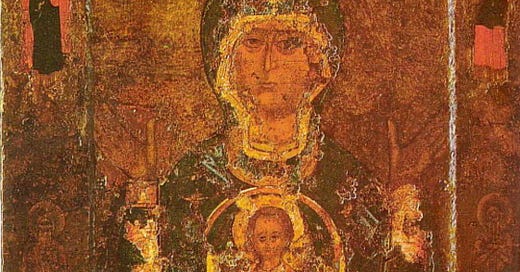Goode men and woymen, as ʒe knowen wele all, þys day ys called Whitsonday, for bycause þat þe Holy Gost as þys day broʒt wyt and wysdome ynto all Cristes dyscyples.
IN days of old the tongues were scattered
the nations cast abroad in tribes and bands
like Osiris hewn and strewn in sundry lands
so perfect speech was broke and tattered,
such that scarcely anything that mattered
anymore could men pronounce or understand
till in accord, the chosen twelve did stand,
while in the upper room they gathered,
when upon them tongues of flame descended
and speech was made diaphanous to mind
for since the temple veil was rended
and in the tomb, no corpse was left behind
and since the Logos bodily ascended
the Word a man must seek within to find














Ah yes, the Upper Room distinction, given at line 8.
I have been giving particular note to this because of someone we revere who gives Pentecost a due noting on that very day. Yet, did Petrarch know how severe it would become? This is interesting.
In today's theater, the lines are very much blurred. What was once seen as distinct in the separation of above and below, which Petrarch duly acknowledges, is now seen as having nothing of any meaning other than, "either/or"; "do or don't", or maybe even, "this is it".
Have we lost the parameters of the configuration of the Upper Room on Whitsunday? I always have to thank Max, who brings it along.